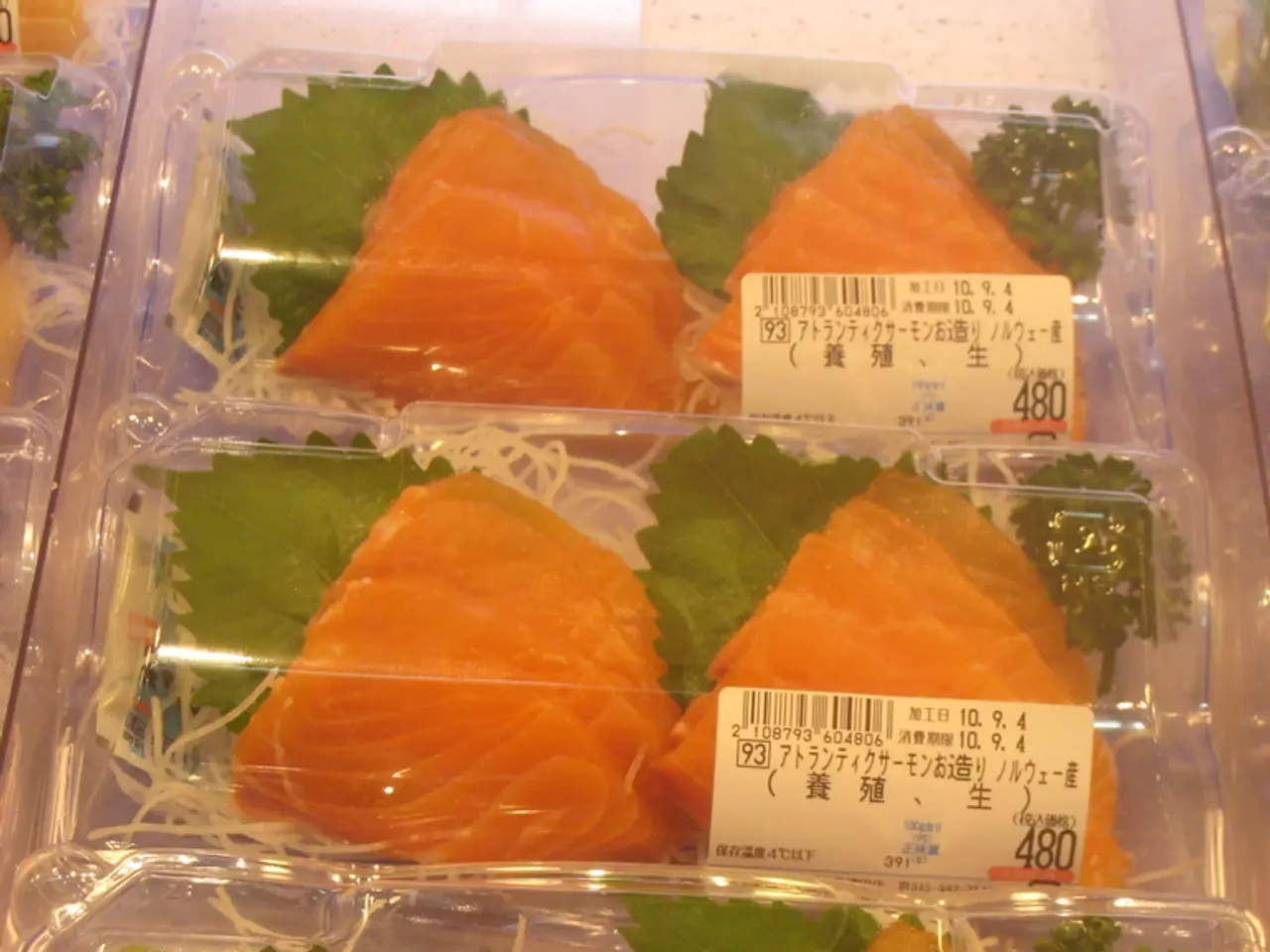Test assesses mercury levels in tuna - advises caution on two specific brands
In a recent test conducted by Oeko-Test, two canned tuna products were found to have high levels of methylmercury, a potentially harmful substance that could pose risks to frequent fish consumers, pregnant, and breastfeeding individuals.
The tested tuna was of the Echter Bonito/Skipjack species. The two products that exceeded the safe limits were the "Almare Seafood Tuna Chunks in Own Juice and Gravy" from Aldi Nord and the "Edeka Tuna Chunks in Own Juice and Gravy".
Oeko-Test tested a total of 29 canned tuna products for mercury contamination. Trace amounts of mercury were found in all tested products, but methylmercury levels were low in almost all. However, the aforementioned products from Aldi Nord and Edeka had levels that exceeded the recommended limits.
The evaluation was based on the tolerable weekly intake (TWI) for methylmercury set by the European Food Safety Authority (EFSA). The TWI for methylmercury is 1.3 μg per kilogram of body weight. Consuming one can of these tuna products exceeds half of this limit.
Methylmercury is particularly harmful to the developing nervous system and can impair the neurological development of unborn children and infants. It can breach the blood-brain barrier and accumulate in the liver, kidneys, and brain.
Brands like Followfood, Bio Gourmet, Ja!, and Gut & Günstig received a "very good" rating in the test, indicating that their products had low levels of methylmercury. The manufacturers of the two tuna products rated as highly dangerous for pregnant and breastfeeding women by Oeko-Test are Kühne and Followfish.
It's important to note that mercury enters the sea through the food chain, with larger and older fish having higher contamination levels. Bacteria convert mercury into methylmercury, which is then taken up by aquatic organisms and consumed by fish.
The test excluded tuna products with oil or vegetable additives. The prices of the tested tuna ranged from 1.17 to 4.49 euros per can or pouch.
The test results were published in Oeko-Test's latest issue (08/2025). Oeko-Test has repeatedly found harmful substances and contaminants in various products, including BPA in baked beans and alarming results in the cooking oil test.
While this test focused on canned tuna, it serves as a reminder for consumers to be mindful of the sources of their seafood and the potential risks associated with certain types of fish. Always consult with a healthcare professional for advice on dietary choices during pregnancy and breastfeeding.
Read also:
- Peptide YY (PYY): Exploring its Role in Appetite Suppression, Intestinal Health, and Cognitive Links
- Toddler Health: Rotavirus Signs, Origins, and Potential Complications
- Digestive issues and heart discomfort: Root causes and associated health conditions
- House Infernos: Deadly Hazards Surpassing the Flames








